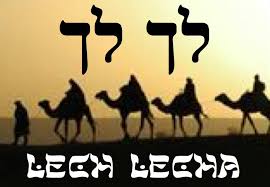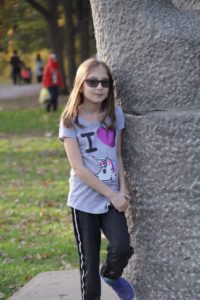 For the Jewish journey blog this week, my daughter asked me if she could write something related to the parasha. She did not discuss with me ahead of time what she wanted to write, and to be perfectly honest, I was skeptical about what she would come up with and what I would say if I didn’t want to use it. But I will include it here – unedited – with much pride. She took a story in the Bible that she knew and applied it to a present-day experience, as she anticipates and understands it; this is the goal of Jewish education.
For the Jewish journey blog this week, my daughter asked me if she could write something related to the parasha. She did not discuss with me ahead of time what she wanted to write, and to be perfectly honest, I was skeptical about what she would come up with and what I would say if I didn’t want to use it. But I will include it here – unedited – with much pride. She took a story in the Bible that she knew and applied it to a present-day experience, as she anticipates and understands it; this is the goal of Jewish education.
In this week’s parashah, God tells Abraham to leave his home and go to a new land, and He promises to make Abraham a great nation, with countless descendants, like the stars in the sky and grains in the sand. God seals this covenant with Abraham through circumcision, a sign of the promise to perpetuate our commitment to our Jewish identity throughout the generations to come.
Shabbat is also called a covenant for the generations. The weekly experience of sharing Shabbat, eating together, participating in simple rituals like lighting candles, the wine and the challah, learning, singing, praying or just talking about our past week offers the opportunity for a family to reconnect after hectic schedules drive us in different directions throughout the week.
As our Akiva family shares Shabbat dinner as part of the global Shabbat Project movement to bring Jews across the world to celebrate and keep Shabbat together, we confirm for our children our commitment to the Jewish life of our school, and we experience how Shabbat can establish continuity between the generations and perpetuate a commitment to our Jewish traditions.
When our children can find meaning in the texts and traditions of the past for their own lives – we can be assured that our generation too will succeed in upholding Abraham’s covenant with God and a commitment to Jewish identity.
And now for our guest:
 Hi, my name is Tali Warshawsky. I’m Debbie’s youngest daughter. I’m in grade 4 at Akiva School. This week’s parsha is Lech Lecha which means to leave. It’s kind of like sleep away camp for the first time. In Lech Lecha it says “Lech lecha me’artzekha u-mimoladetekha, u-mi-beit avikha el ha’aretz asher ar-eika,” which means leave the place you were born and you live in and follow to the land that I will show you. Avram did not know where he was going but still followed. On the day you leave for sleepaway you’re leaving to a place you’ve never been to. You’re leaving your home, parents, siblings and friends. It’s a whole experience. Avram followed God for a long time maybe a month actually not knowing where he was going, how much further, why he was doing this and if he was going to like this, he may have been having second thoughts. When you’re on the bus to sleepaway you get mixed emotions it goes something like “Oh no oh no I miss mom and dad and my sister\s and/ or brother\s “but also “I’M SO EXCITED!!!” and “What if I make NO friends!’ and “I’ve got to get out of this bus” and “I can’t wait!’’ See mixed emotions. It’s scary. Avram left with his wife. Sometimes at sleepaway your siblings come with you. From Avram we learn many many things. In this parasha and in many others we learn to always trust God.
Hi, my name is Tali Warshawsky. I’m Debbie’s youngest daughter. I’m in grade 4 at Akiva School. This week’s parsha is Lech Lecha which means to leave. It’s kind of like sleep away camp for the first time. In Lech Lecha it says “Lech lecha me’artzekha u-mimoladetekha, u-mi-beit avikha el ha’aretz asher ar-eika,” which means leave the place you were born and you live in and follow to the land that I will show you. Avram did not know where he was going but still followed. On the day you leave for sleepaway you’re leaving to a place you’ve never been to. You’re leaving your home, parents, siblings and friends. It’s a whole experience. Avram followed God for a long time maybe a month actually not knowing where he was going, how much further, why he was doing this and if he was going to like this, he may have been having second thoughts. When you’re on the bus to sleepaway you get mixed emotions it goes something like “Oh no oh no I miss mom and dad and my sister\s and/ or brother\s “but also “I’M SO EXCITED!!!” and “What if I make NO friends!’ and “I’ve got to get out of this bus” and “I can’t wait!’’ See mixed emotions. It’s scary. Avram left with his wife. Sometimes at sleepaway your siblings come with you. From Avram we learn many many things. In this parasha and in many others we learn to always trust God.
That’s all! Shabbat Shalom.
Tali Yael Warshawsky.












